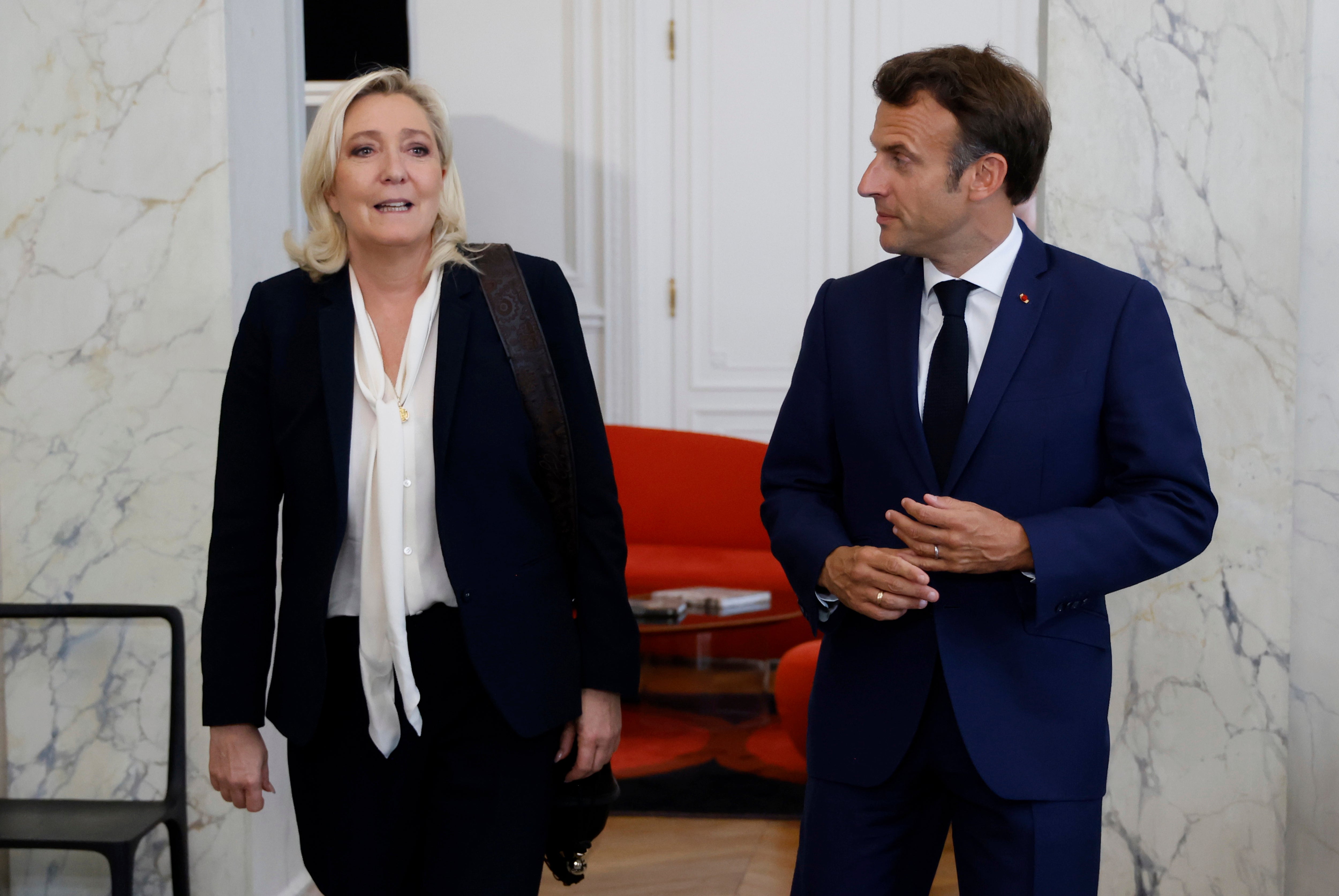Was Macron right to warn of a ‘civil war’ in France after the coming election?
With the far right posed to take more seats than at any time since 1940, and politicial tensions at thier highest point in decades, why did the French president call for an election in the first place, asks Richard Ogier


Macron the self-aggrandiser? Impulsive seeker of the media “buzz”? It always seemed that the French president’s most hectoring critics portrayed him thus, despite cutting unemployment to record lows, enabling business and being a major, ideas-driven figure on the world stage.
And yet dynamic Emmanuel Macron lent credence to the view of him as an unusually narcissistic leader last week, when he raised the spectre of “civil war” should either the extreme right or left win snap parliamentary elections in France, the first round of which is today.
On a podcast, the centrist president said the solutions of the far-right National Rally (RN) to problems of crime and immigration “categorise people in terms of their religion or origins, and that is why it leads to division and to civil war”. Meanwhile, he suggested the hard-left France Unbowed – leaders of the four-party New Popular Front (NFP) – advocated a particular brand of identity politics “solely categorising people in terms of their religious outlook or the community they belong to”, which could also lead to civil war.
The president or-elsing the electorate (“Vote for my centrist alliance or there’ll be chaos”) seemed a bit rich, given that the elections are the result of his wager on dissolving the National Assembly after his centrist alliance got a shellacking in the European parliamentary elections on 9 June.
Was he obliged, as he said then, to call for “clarity” in a national poll? No, he was not. So if he suffers a knockout blow in voting today and in round two next Sunday (7 July), it will be of the president’s own doing.
If elections are free and fair, the electorate is always right (unless you’re Donald Trump). But Macron, face to the wind, is asking for “clarity” when all the indicators suggest that he’d best better not. Why would the far right win resoundingly three weeks ago, and President Macron turn the tables today?
Opinion polling suggests the French are less keen to turn tables than upend them. Last-stage polling gave 36 per cent of the vote to the RN (including minor-rung allies), the NFP 29 per cent, and Macron’s centrists 19.5 per cent.
The president’s civil war comments were roundly condemned as excessive by the political class and beyond, but have served to focus minds on the fact that unsavoury elements still lurk in the ranks of the party political extremes.
A lengthy investigation in Le Monde reminded readers that the RN has nominated, or renominated, a veritable bevvy of candidates with a “close interest” in collaborationist Vichy France – among their motley number assorted anti-vaxxers, conspiracy theorists and apologists for Putin’s Russia, all of whom the newspaper named.
By way of example, one did a year in prison for “armed violence” committed while putting up posters in 2000. He had previously founded a bookshop specialising in hard-right literature. Another, in the 10th arrondissement of Paris, was nominated “despite major earlier concerns about her use of antisemite slogans”. Still another had his nomination withdrawn at the 11th hour after it was discovered he’d published the Twitter message in 2018 (later deleted): “Gas brought justice to the victims of the Shoah”.
Professor of criminology Alain Bauer said a new (or renewed) brand of unrest could not be ruled out due to what he called a gradually intensifying “rage-osphere” in France. Recent rioting usually involved three or four nights of violence, and then pillage. Noting that even a cursory look at social media showed sections of the radical left would “enter into resistance” if the RN emerged triumphant, we could begin to see the kind of sustained and structured violence currently occurring in the French overseas territory of New Caledonia. Gracious.
Why all this? Why would Macron bring populism knocking at the door in France after the shambles (to put it charitably) of Brexit, and the possibility of Trump again in the White House, with a war raging in Ukraine, and the fast approach of the Paris Summer Olympics?
Macron said something needed to be done after the EU poll, or he’d be hectored as indifferent to its outcome – and that “thing” would be parliamentary elections.
But at what cost? A hung parliament is the most likely outcome on 7 July, to replace the current hung parliament, so in a sense simply adding to the existing cacophonous political malaise. Except – and this is a big one – with more far-right deputies in the House, with a majority or not, than at any time since 1940.
Richard Ogier is a journalist and consultant based in Strasbourg
Join our commenting forum
Join thought-provoking conversations, follow other Independent readers and see their replies
Comments
Bookmark popover
Removed from bookmarks